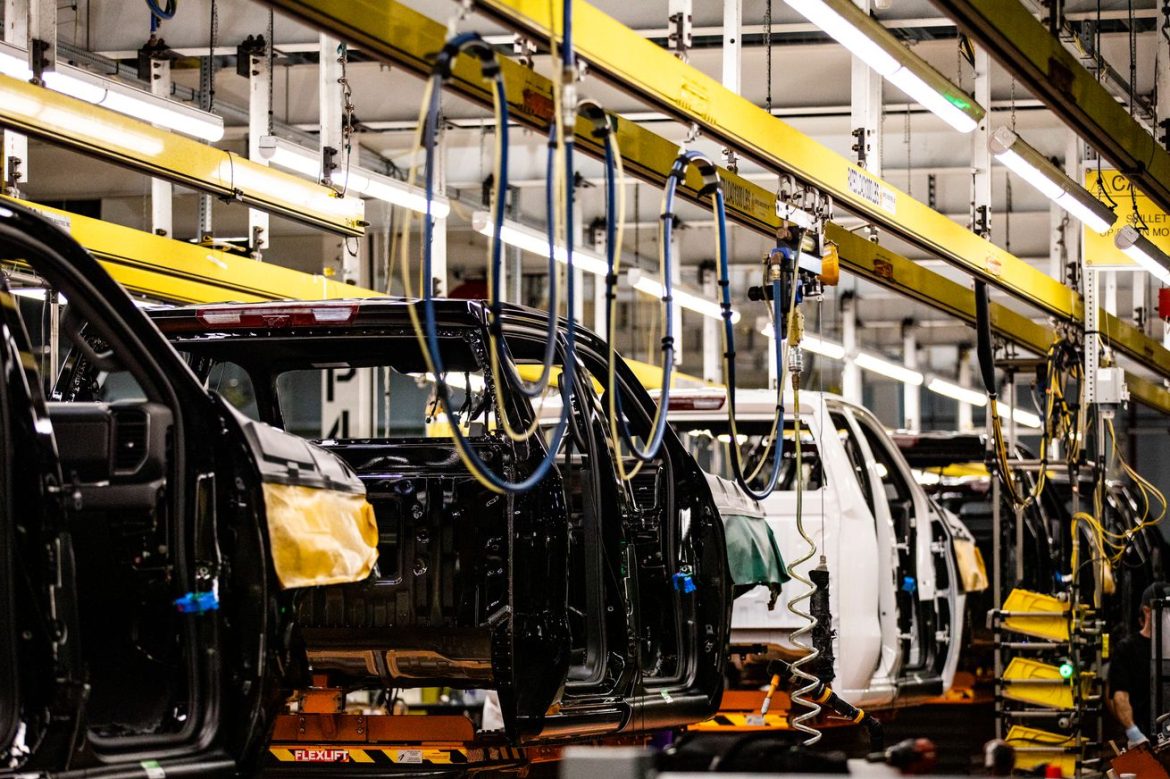
Senators rip into automakers for selling customer data and blocking right to repair

A bipartisan group of senators is calling out the auto industry for its “hypocritical, profit-driven” opposition to national right-to-repair legislation, while also selling customer data to insurance companies and other third-party interests.
In a letter sent to the CEOs of the top automakers, the trio of legislators — Sens. Elizabeth Warren (D-MA), Jeff Merkley (D-OR), and Josh Hawley (R-MO) — urge them to better protect customer privacy, while also dropping their opposition to state and national right-to-repair efforts.
“Right-to-repair laws support consumer choice and prevent automakers from using restrictive repair laws to their financial advantage,” the senators write. “It is clear that the motivation behind automotive companies’ avoidance of complying with right-to-repair laws is not due to a concern for consumer security or privacy, but instead a hypocritical, profit-driven reaction.”
For years, the right-to-repair movement has largely focused on consumer electronics, like phones and laptops. But lately, the idea that you should get to decide how and where to repair your own products has grown to include cars, especially as more vehicles on the road have essentially become giant computers on wheels.
Along with that, automakers have taken to collecting vast amounts of data on their millions of customers, including driving habits, that they then turn around and sell to third-party data brokers. Earlier this year, The New York Times published an investigation into General Motors’ practice of providing microdetails about its customers’ driving habits, including acceleration, braking, and trip length, to insurance companies — without their consent.
Several states have passed right-to-repair laws in recent years, aiming to protect consumers from high prices and unscrupulous practices. In 2020, Massachusetts voters approved a ballot measure to give car owners and independent repair shops greater access to vehicle repair data. But automakers sued to block the law, and four years later, the law remains dormant.
2024.12.19 Letter to Automakers Re Right-To-Repair and Data Sharing (Combined) by ahawkins8223 on Scribd
The auto industry claims to support right to repair. And some facts bear this out. For decades, small, independent auto body and repair shops flourished thanks to the idea that car maintenance is universal — that anyone with a socket wrench and some grease can repair or modify their own vehicle.
But as cars have become more connected, a lot of that work now relies on data and access to the digital information needed to diagnose and repair vehicles. And right-to-repair advocates, along with independent repair shops, are worried that major automakers are trying to kill their businesses by funneling all the work to their franchised dealerships, which typically cost more than the smaller garages.
In the letter, Warren, Merkley, and Hawley demand that automakers drop their “fierce opposition” to these right-to-repair laws, calling it “hypocritical” and monopolistic.
As the gatekeepers of vehicle parts, equipment, and data, automobile manufacturers have the power to place restrictions on the necessary tools and information for repairs, particularly as cars increasingly incorporate electronic components. This often leaves car owners with no other option than to have their vehicles serviced by official dealerships, entrenching auto manufacturers’ dominance and eliminating competition from independent repair shops.
Automakers have raised cybersecurity concerns, including the specter of some bad actor remote hacking your car while driving it, as an excuse for fighting right-to-repair laws. But these concerns are “based on speculative future risks rather than facts,” the senators note. They cite a Federal Trade Commission study that found “no empirical evidence” backing up the auto industry’s claims that independent shops would be more or less likely to compromise customer data than authorized ones.
It’s more likely that auto companies want to limit access to vehicle data for profit-driven reasons, the senators say. And that despite loudly proclaiming to care about cybersecurity, few companies actually comply with basic security standards when collecting, sharing, or selling consumer data.
While carmakers have been fighting tooth and nail against right-to-repair laws that would require them to share vehicle data with consumers and independent repairers, they have simultaneously been sharing large amounts of sensitive consumer data with insurance companies and other third parties for profit — often without clear consumer consent. In fact, some car companies use the threat of increased insurance costs to push consumers to opt into safe driving features, and then use those features to collect and sell the user data.
The senators conclude by urging the auto CEOs to abandon their hypocritical opposition to right-to-repair laws, while also pressing them to answer a list of questions about their data-gathering practices.
“We’re pushing these automakers to stop ripping Americans off,” Warren said in a statement to The Verge. “Americans deserve the right to repair their cars wherever they choose, and independent repair shops deserve a chance to compete with these giants.”
